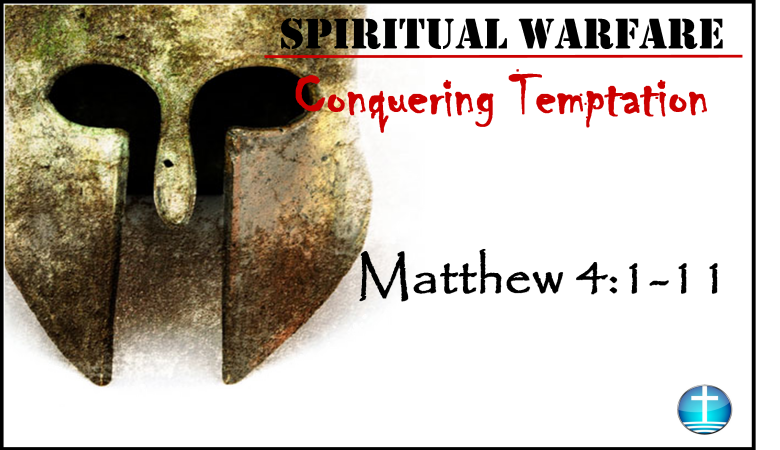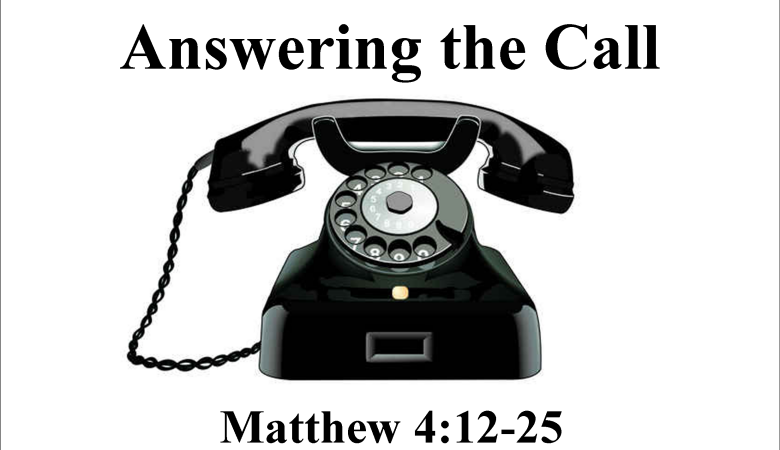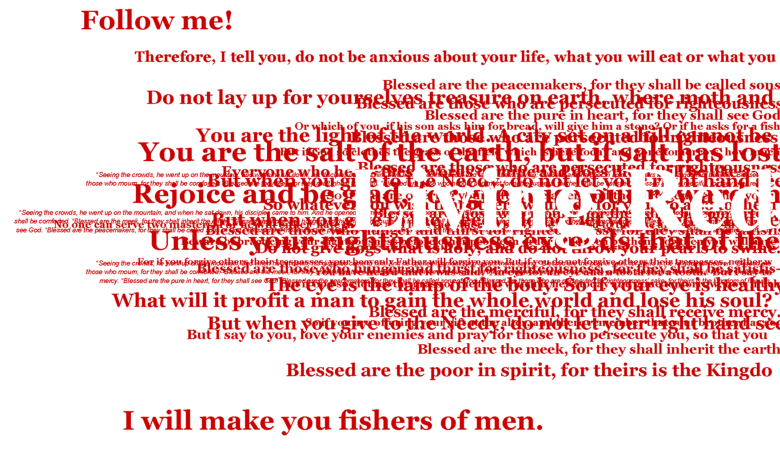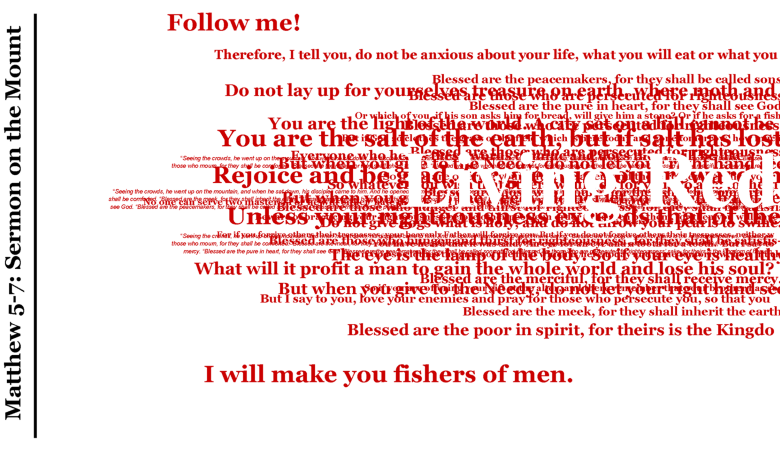Matthew 16:23-27, "Bearing Your Own Cross"
Our text this morning is Matthew 16:23-27, but we’re going to begin reading in verse 21 to help give us a little understanding of the context. Please open your Bibles there, and we will read, pray, and get to work with studying and understanding the words that God has given us in this passage. . Studio Kids, and everyone else for that matter, today we’re going to be answering 2 main questions. The first question is “What are the things of God?”, the second question is “Why do they matter?”. So pay attention and be listening for when I ask those questions and when I discuss the answer to them. [READ Matt. 16:23-27]
Vs. 23: So after Jesus reveals that He must die for the salvation of man, Peter says no, “far be it from you”. Jesus then rebukes Peter. Kids, a rebuke is when you correct someone very firmly. And Jesus calls Peter Satan. Now Peter wasn’t Satan, but Jesus said that to make the point that Peter was actually promoting the goals of Satan because his mind, Peter’s desires weren’t focused on the things of God. Kids, there’s that phrase things of God. The first thing we learn about them is that if we’re setting our minds on them, that we of course have to be setting them on something else. And the problem is that if we do set our minds, our hearts, our desires on something else, then that is against God’s purpose and we are in fact a hindrance, an obstacle to what God wants to do. So what precisely are the things of God? That’s our first question.
Jesus answers that question in verse 24. He doesn’t just speak to Peter, he calls the disciples to listen, and the book of Mark tells us that he also called the crowds over at this time. He paused his conversation with Peter to make sure that every one heard the point he was about to make. These were the people who were following Jesus. The disciples went everywhere with him and the crowds were continually gathering around him to hear what he had to say and see what he would do. And he says, “If anyone would come after me, let him deny himself and take up his cross and follow me.” In this verse Jesus touches on three elements that he had already taught.
First we see the element of self denial. In Matthew 5:29-30 Jesus spoke about our temptations of sin in our life. [READ Matt. 5:29-30] Sin, temptation, and the desire to indulge in sin is so intertwined and entangled within us that in order to rid ourselves of it we must cut off parts of our life, perhaps elements and people and situations that make up who we are. That’s a difficult and painful thing to do, and that’s why Jesus compares it to cutting off your hand. The greek word for “deny” means “to disown”. Jesus tells us all that we must disown ourselves, our lives, the elements that make us us in order to come after him.
Jesus also touches on persecution. Again, this is something he had already touched on. In chapter 10 he prepared the disciples for service to him with an intense description of the persecution, and even death that they would suffer personally because of Jesus. But here in verse 24, the level of persecution is taken up to the nth degree. He says that the follower of Jesus must take up his cross. What does that mean? This was a very powerful phrase for the people of this time and we need to be careful not to miss it. It is a noble and humble thing to pick up our cross and follow Jesus, but we need to be careful that we don’t use this phrase out of pride. We live in a broken world. We sin. We experience consequences of our sin. It’s hard. It’s sad. And it’s painful to see and endure. We must not confuse consequences of our own sin and life in a fallen world with sacrifice of suffering for the name of the Savior. We endure long painful illnesses. We have jobs and coworkers that perhaps we’re not the fondest of. We have to go to school. Our houses and flood. Our cars break down. That’s not bearing our cross.
A cross had a very specific purpose. That was how the worst criminals died. It was a very long and drawn out method. People were nailed to a cross to hand there in the air until they died. It wasn’t just a death sentence, it was a death by means of torture. But before that even happened, they had to carry this 200 pound cross to the place where they were going to suffer and die. When someone had to pick up their cross, it meant that they were picking up this huge burden, their own torture device and get it ready for use. So when Jesus uses this terminology, he’s saying that in order to follow him, they must willingly pick up this burden, their own personal torture device, embrace shame and ridicule, and not even for a crime that they had committed, but for the sake of some one else, Jesus.
The gospel of Luke adds one key word to this account, to pick up our cross daily. This helps clarify things for us. A physical death for Jesus is not a ticket into heaven. We cannot live the life that we want and neglect everything that Christ wants with the illusion that we just have to die for him, that we can just turn to him at the end when we’ve had our fill of this world. We’re blessed that suffering and especially persecution (while still existent) probably aren’t daily realities most of us. We must wake up every day, ready to embrace ridicule. Ready to suffer. Ready to endure all of this, not to get what we want, but to represent someone else, Jesus.
The third element of verse 24 was to follow Jesus. Follow meant “to be in the same way as”. Jesus had just finished explaining how he would suffer and die and now he’s telling everyone who would come after him that they must be in the same way as Jesus. We cannot be in the same way as Jesus if cannot embrace our cross, the certainty of pain and suffering. We cannot be in the same way as Jesus if we cannot disown the things that we want. We asked the question ‘what are the things of God?’ It’s this: to disown ourselves, embrace ridicule and suffering on a daily basis, and be in the same way as Jesus,. That’s what is required of us if we want to come after him.
Verse 25. It’s important to note that the word “life” here is not referring to mere physicality. It refers more accurately to our souls. We also need to remember that one of the major themes that’s been running throughout this entire gospel of Matthew is that Jesus is the promised Messiah, the one true King of Israel. As the one true King, he has power and authority. In Matthew 12:30, Jesus says “Whoever is not with me is against me, and whoever does not gather with me scatters.”
So the King of heaven and earth tells us here that if we want to save your life, to savor it, protect it, enjoy it, do all of those things yourself, not under the direction of the king, then you are not able to do the things of God and are therefore opposed to the King. That is how we will lose our soul. But, setting our mind on the things of God, se surrender everything to the only one who who holds true authority and eternity in His hands.Romans 12:1 captures this thought much better than I can. [REA Rom 12:1-2] Jesus demands much more than a willingness to die for him. A sacrifice is something that we give up that is of great cost to us. He demands the while we go on living, that our joys, pleasures, efforts, time, resources, are given over to Him. That’s coming after Jesus. As Romans says, that’s worship. That’s true life.
Kids, are any of you still with me? Does anyone remember the 2nd big question we were going to discuss? Right Why do the things of God matter? We’re going to see why, so hang with me. Verse 26. Wemicks story. The things of man are boxes and balls. They have no lasting value or benefit. What are our boxes and balls. What things of man have we set our hearts on? Is the approval of friends. Is it to hear people look up to us? Is our main goal in life to have fun adventures when we’re not in school or at work? If we gain all of our boxes and balls, then we have set our mind on the things of man and will have forfeited our soul. Are they worth that price? The things of God matter because, for all the difficulties, for all the discipline effort, we are rewarded with everlasting peace with God.
Verse 27. In case we needed a reminder that Jesus’ words aren’t mere words. They are truth. This is a promise here of a day to come. We will be held accountable to what you set your heart on. So we must ask ourselves, have I disowned everything to follow this King, or have I acquired boxes and balls.
The timing of things is interesting. I preach every 6 weeks, and this was my scheduled week to preach. I did not choose this specific passage. This is the passage where we are at together as a church as we work through Matthew. I’m about to mention several people simply because I belive they examplify this passage. I would’ve done this last week, or next week, or even next year. However, it just so happens that today of all day, these people happen to be present with us from over 3,000 kilometers away. There is one person here from NM for the first time. Everyone else has come before. And several of them have come up here every year for the last 6 years. They have sacrificed thousands of dollars. They have careers, demands on their time, family members spread across the country that they need to spen time with. And yet, every year, they sacrifice their money and more importantly I think, their limited vacation time to come up here. Why? It’s not a vacation. They sacrifice and labor. Why? As much as Kyla and I love them, I know it’s not because of us. It’s because they love Jesus. They want to serve Him. The want to help us serve Him, grow closer to Him, and see others be saved by Him. They have set their minds on the things of God.
We are with God or against him. We set our mind on the things of God or man. We are a blessing, or a hindrance.
Series Information
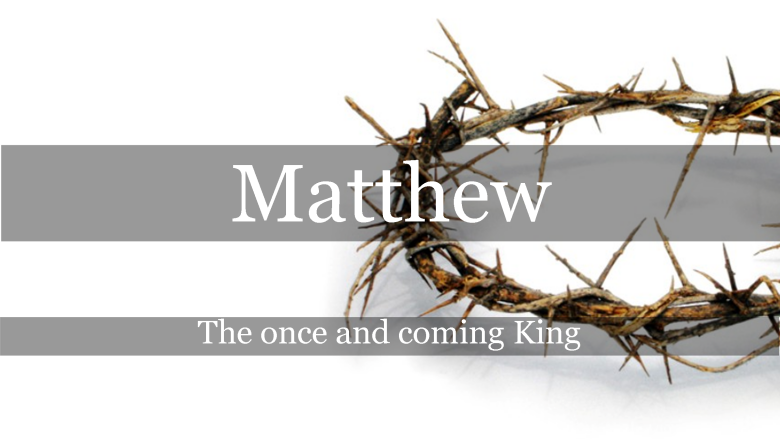
The Gospel of Matthew is a story about a once and coming King. Jesus of Nazareth is the Son of David, the long awaited for Messiah. He has come once, and Matthew tells the story of His arrival, ministry, sacrificial atoning work on the cross, and His promise to return soon.


